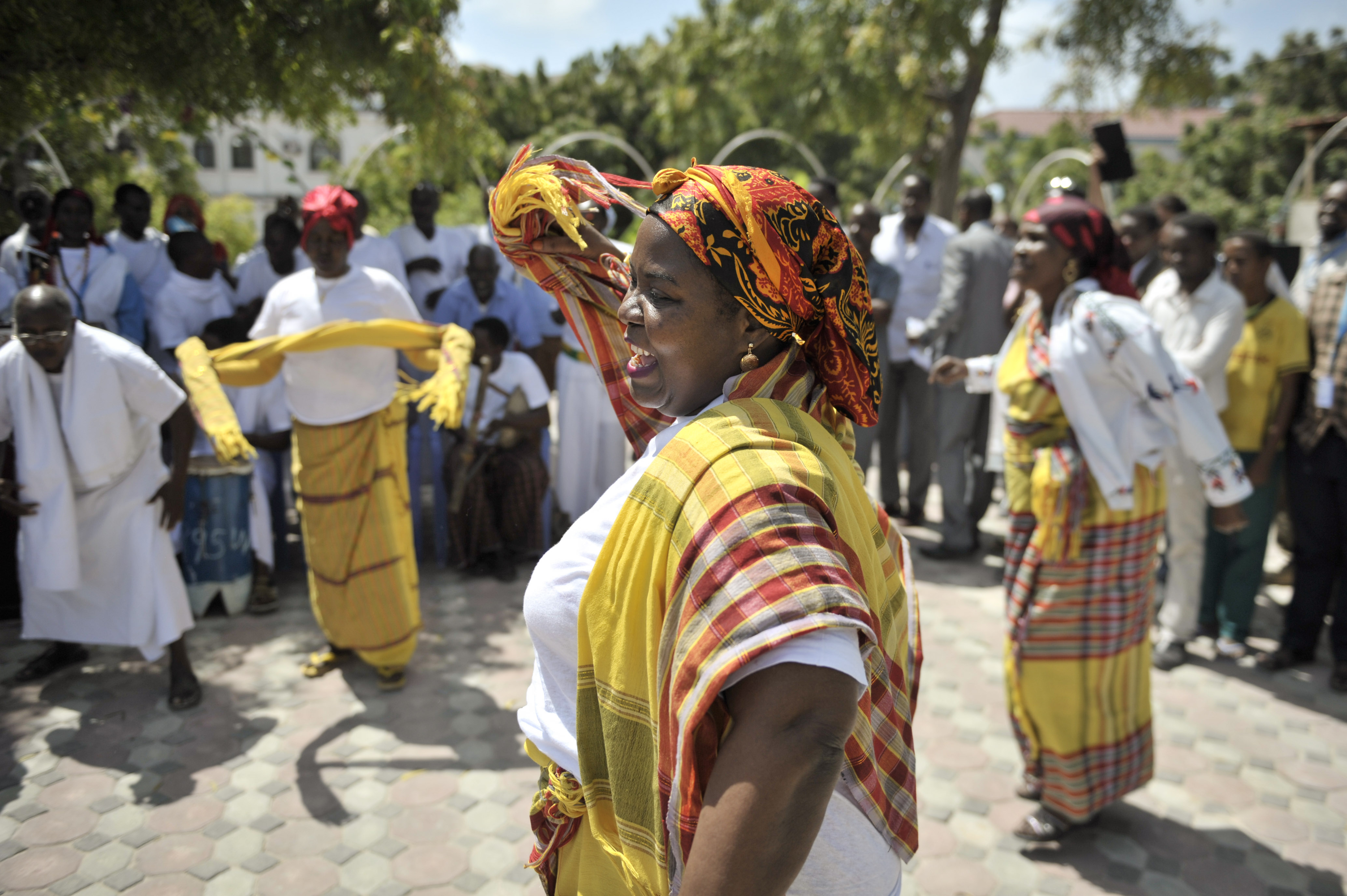Mogadishu, 1 October 2014: The United Nations Secretary-General’s Envoy on Youth, Mr. Ahmad Alhendawi visited Somalia to reaffirm the support of the United Nations to youth development in Somalia. During the mission, Mr. Alhendawi met with high level government officials and youth organizations to reiterate the support of the UN in developing the National Youth Policy to ensure that young people are empowered, consulted and able to participate in the development process.
“Young people in Somalia have paid the highest price of conflict and instability,” said Mr. Alhendawi. “I am here because I believe that youth are the country’s biggest assets. I reiterate the United Nations unwavering commitment to youth development through a new National Youth Policy.”
In meetings with the Somali Speaker of the Parliament, Prime Minister, and Ministers of Higher Education, Youth and Sports, Education and Health, Mr. Alhendawi announced the support of the United Nations for the development of a National Youth Policy. The National Youth Policy, being developed by the Ministry of Youth and Sports, will guide youth-focused interventions that will respond to the aspirations of youth and help young men and women play their role in bringing peace and stability to Somalia.
“The Youth are one of the critical resources of our nation considering their potential, numbers, vitality, and capabilities as change agents for national transformation,” said His Excellency Dr. Khalid Omar Ali, the Minister of Youth and Sports, Federal Government of Somalia.
Young people under 30 years old represent more than two thirds of the population today in Somalia, one of the largest demographic youth bulges in the world. Somalia has one of the lowest school enrolment rates in the world with only four out of ten children in school. Two thirds of youth are unemployed and lack of access to opportunities. As a result of over 25 years of conflict, two generations have been denied education, employment and knowing what a stable life is. Due to social and economic marginalization, young people are increasingly turning to crime and radicalization and are at risk of being recruited by armed groups. Particular emphasis is required to help girls and women to access education and employment as they face additional barriers compared to their male counterparts. Improving the lives of the youth is crucial for building peace and stability in the country.
“Through my meetings with government officials and young people in Somalia, I have felt the determination of this generation to open a new chapter. I have witnessed the challenges first hand, but I am confident that the determination of youth and right investment in them will transform the country. Young people have the potential to become drivers for peace and stability,” stressed Mr. Alhendawi.
In a visit to the Centre for Peace and Democracy to meet with youth from across different regions of Somalia, Mr. Alhendawi expressed that his visit was an opportunity to raise global awareness about the challenges and opportunities that Somali youth face.
“I would like to show the world who the real shabab are of Somalia,” said Mr. Alhendawi. “The real shabab of Somalia are the ones who are working hard to support the positive development and peace. Let’s restore the term ‘shabab’ to its true meaning—youth in Arabic. Somalia’s youth are the key to its future.”
In order for the Federal Government to reach its Vision 2016 and implement the New Deal Compact, the Youth Envoy stressed the importance of increasing the engagement with Somali youth. In partnership with the Ministry of Youth and Sports and civil society, the UN Assistance Mission in Somalia (UNSOM) has already started to hold consultations with youth to ensure that they fully participate in and lend their voices to the ongoing peace- and state-building process their country is undertaking.
The United Nations will support the Somali Federal Government through two initiatives that are currently under way: a comprehensive strategy on youth that aims at increasing youth participation in governance processes, prevent violence and promote reintegration, stimulate employment and economic empowerment of youth as well as further youth-friendly service provision; and a joint programme for youth employment that will provide direct employment opportunities, employment skills to the youth, and stimulate key sectors of the economy to create demand for skilled employment.
The visit was sponsored in part by United Nations Human Settlements Programme (UN-Habitat).
For further information please contact:
Office of the UN Envoy on Youth: Hazami Barmada at barmada@un.org
See photos from the Envoy’s visit on Flickr

